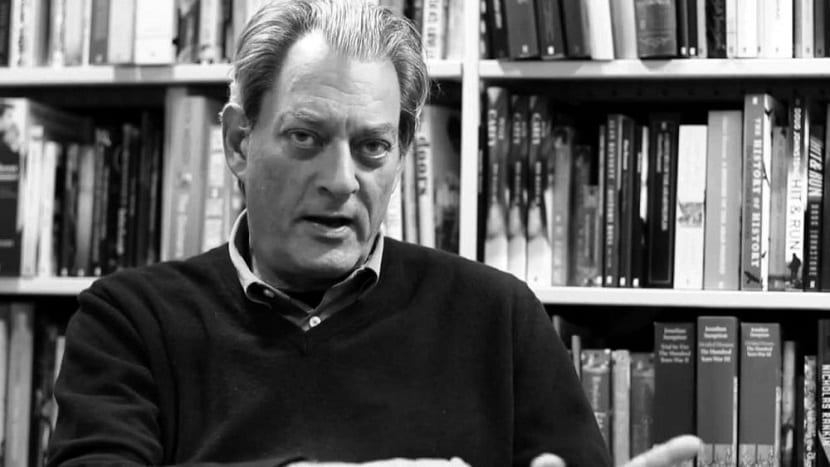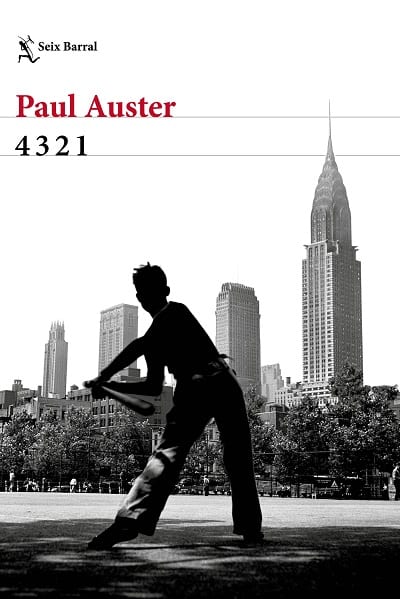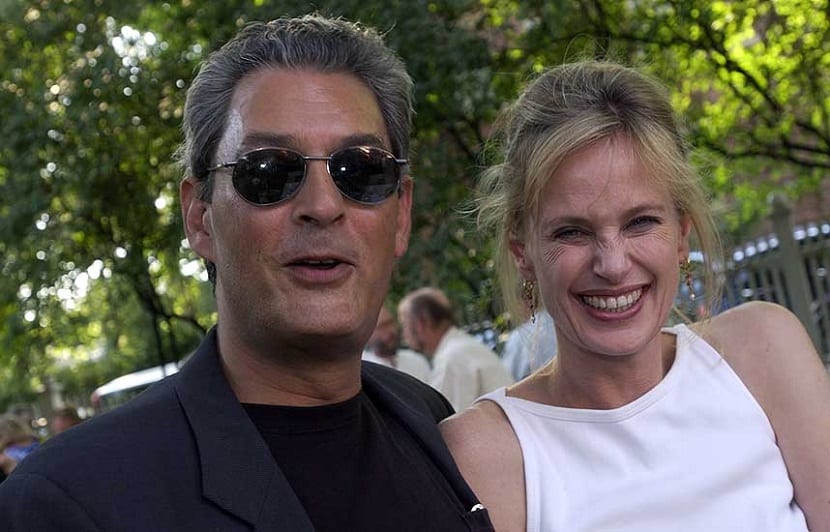We were already looking forward to something new from Paul auster, and although it has taken a while to come out (for those of us who follow the author a lot and enjoy almost all his readings), we already have it with us. With a rare title at least: "4 3 2 1", has been published under the Editorial Seix Barral. Next, we tell you a little more about this book and we leave you with a brief interview that the author himself gave for the publisher.
Synopsis
The only unchanging fact in Ferguson's life is that he was born on March 3, 1947, in Newark, New Jersey. From that moment on, various paths open up before him and will lead him to live four completely different lives, to grow and to explore love, friendship, family, art, politics and even death in different ways, with some of the events that have marked the second half of the American twentieth century as a backdrop.
What if you had acted differently at a crucial moment in your life? 4 3 2 1, Paul Auster's first novel in seven years, is a moving portrait of an entire generation, a coming of age universal and a family saga that explores in a dazzling way the limits of chance and the consequences of our decisions. Because every event, however irrelevant it may seem, opens some possibilities and closes others.
Interview for Seix Barral
Interviewer: How did the ideal come about?
Paul Auster: I really do not know. One day I was here in my house and the idea of writing someone's life story in variations, their parallel lives, hit me. It arose. I don't know why or how. I have never been able to trace the origin of an idea for a book. One moment there is nothing and the next minute you have something there. I have never been able to locate that moment when nothing becomes something. It just happened. What I can tell you is that I was very excited about that idea, which was something that caught me very strongly. I have to say, I wrote it feverishly, it felt like dancing and spinning, and there was a kind of urgency for what I was doing that was extraordinary.
Interviewer: Do you remember the day your life changed?
Paul Auster: The book is not an autobiographical book, by no means. But there is a fact within him that corresponds to something that happened to me, personally, when I was 14 years old. It happened when I was at summer camp and a group of guys, about twenty, went into the woods for a hike and got caught in a terrible thunderstorm. And wanting to get away from the rays, we entered an open field, a clearing. In order to access it, we had to crawl under a chain-link fence. Then we went single file, one by one, under the fence. There was a boy in front of me, I mean so close that his feet were inches from my face. And while he was passing under the fence, lightning struck, killing him instantly. And I think that's the most decisive thing I've ever experienced. See a boy die instantly. It's something that has haunted me my whole life. And this book, I think, comes out of that experience. So it's something I've carried with me since I was 14 years old.
Interviewer: Chance.
Paul Auster: There have been other crucial moments in my life. I think the accident of finding my wife, Siri Hustvedt, is probably the most important. And it was purely by chance. Sometimes I think what would have happened to me if we hadn't met that way. How different would my whole life have been? By this I do not mean that chance governs everything. We have free will, we have freedom to choose and make decisions. We also have obligations and needs to satisfy. But what we always have to do, to be honest with what life is, is to understand and accept that the unexpected is always part of the fabric of life.
Interviewer: A novel about life.
Paul Auster: So I started to think why I was meditating on this question, what is autobiographical in the book and what is not. Clearly, everything that arises from your imagination is inspired by your own experience. But, for example, if you have a character in your novel who smokes a cigarette and you have smoked 10.000 cigarettes in your life, is that autobiographical or is it not? And in any case, the crux of the matter is fiction. Even when you put so-called "real facts" in a novel, they become fictional, they become part of fiction. I think it would be a misinterpretation to see the book as a kind of shadow autobiography. It is not. It is not at all.


